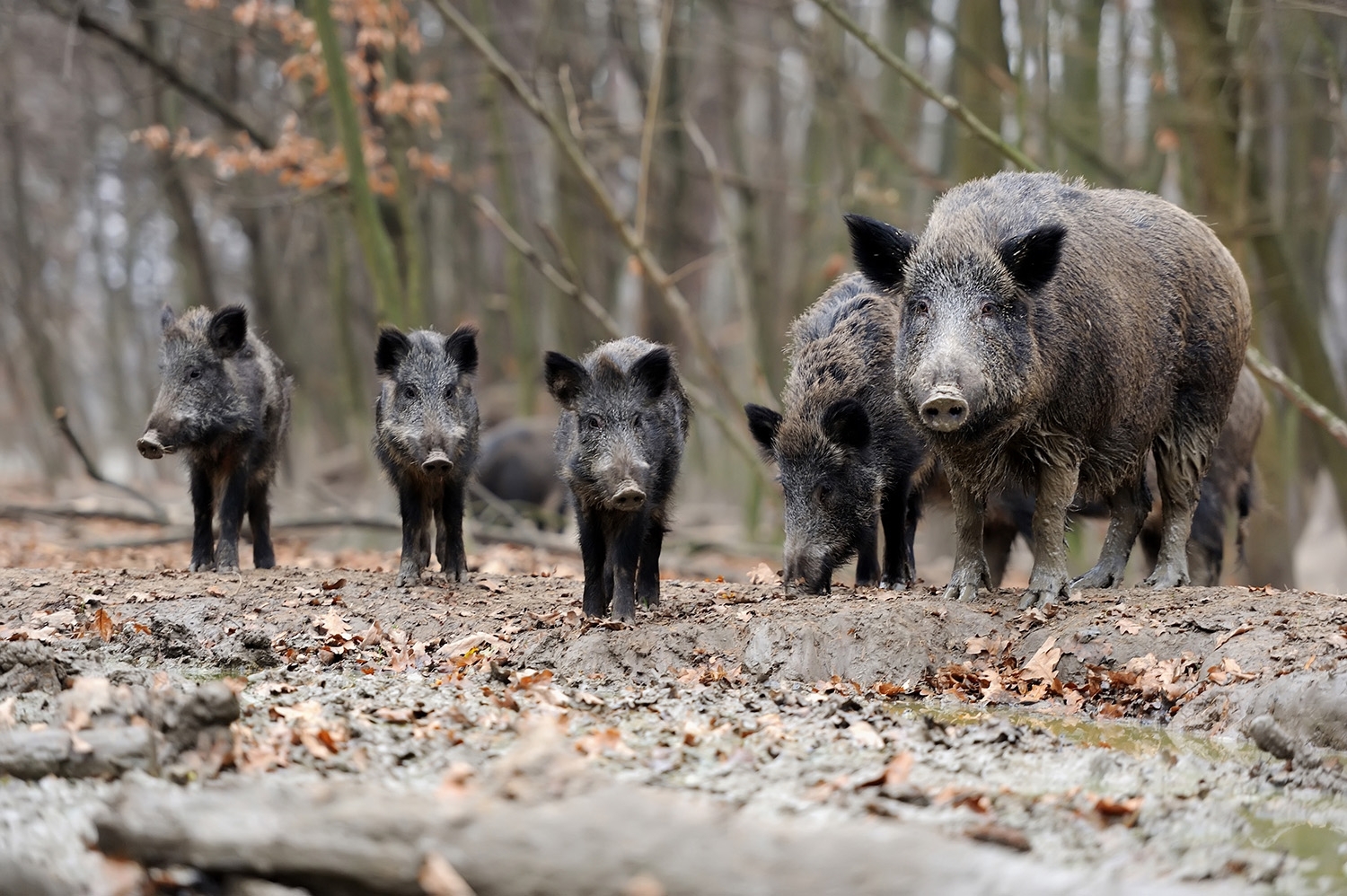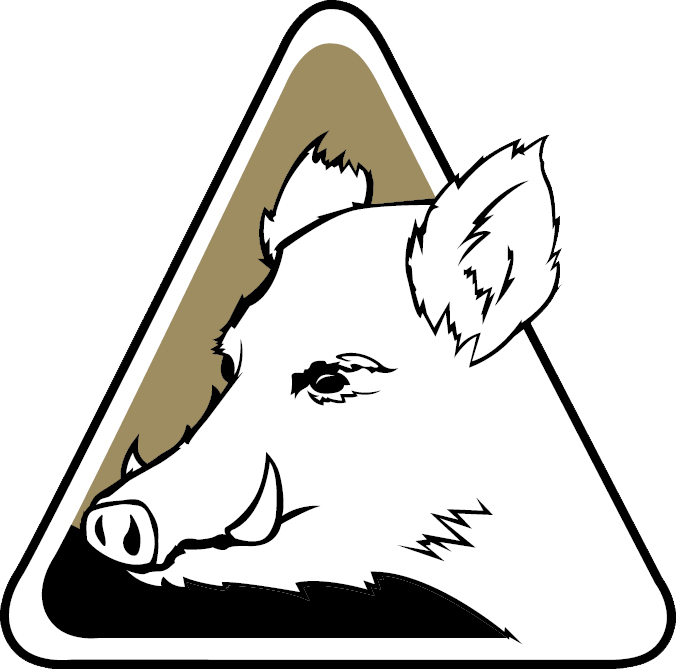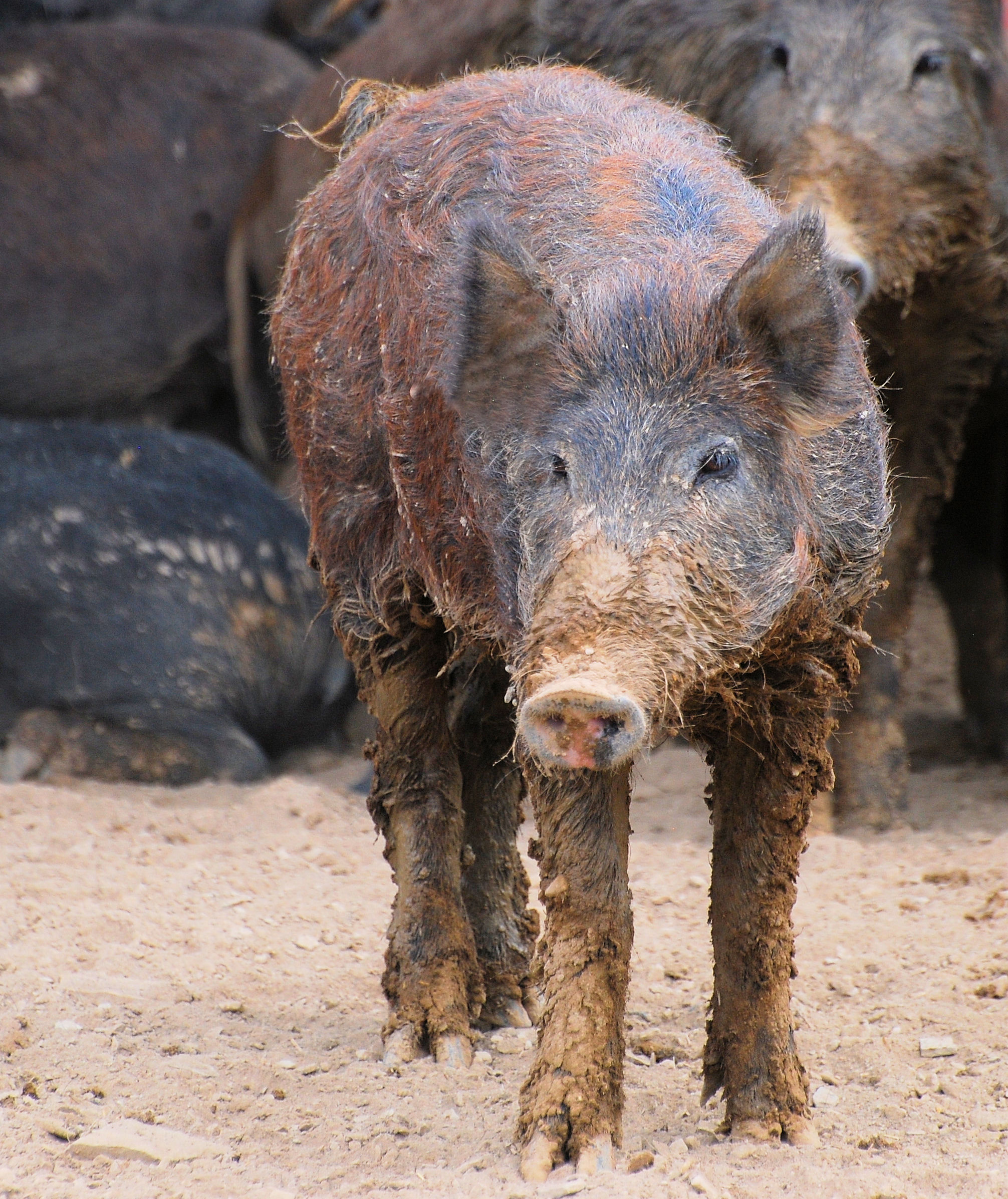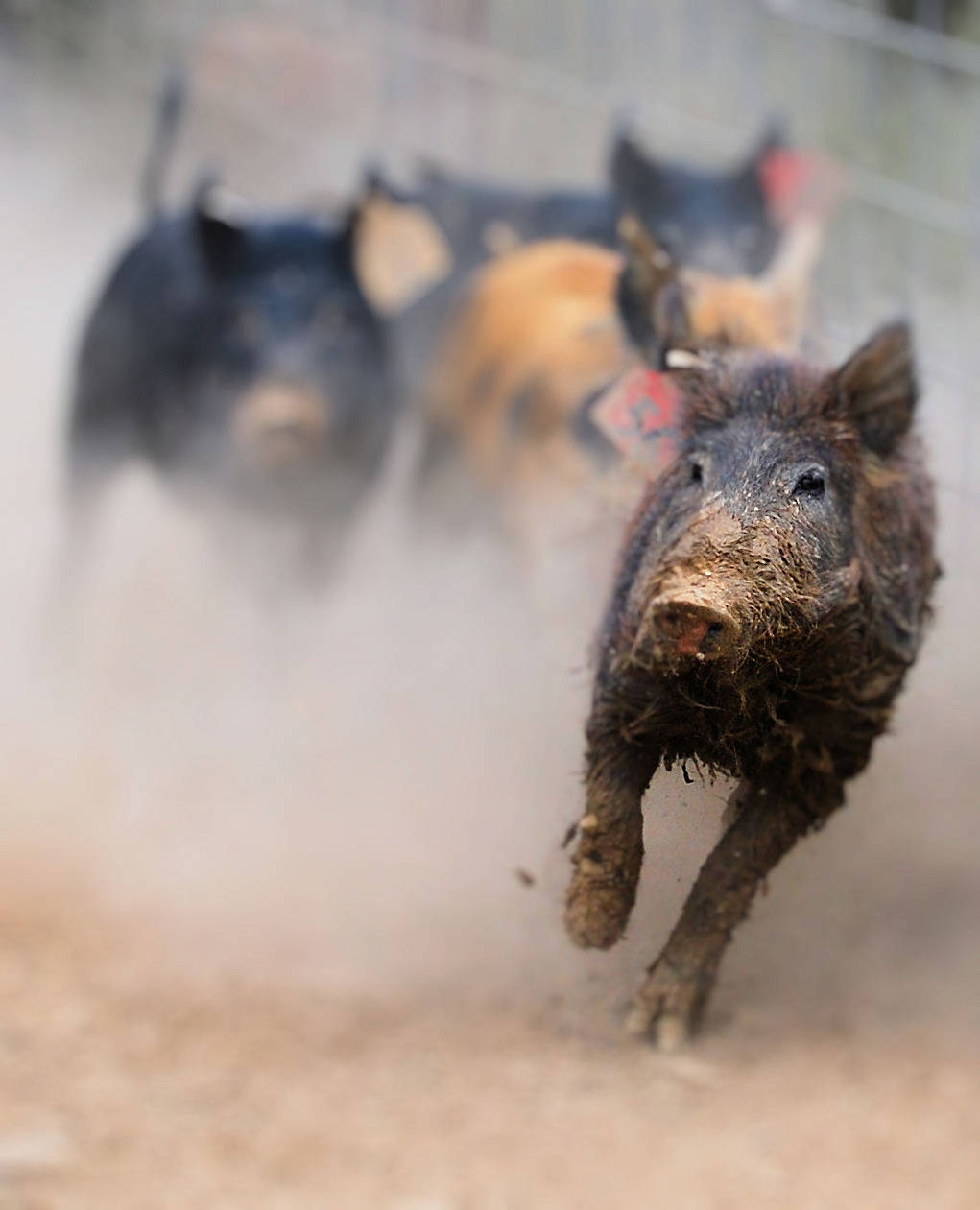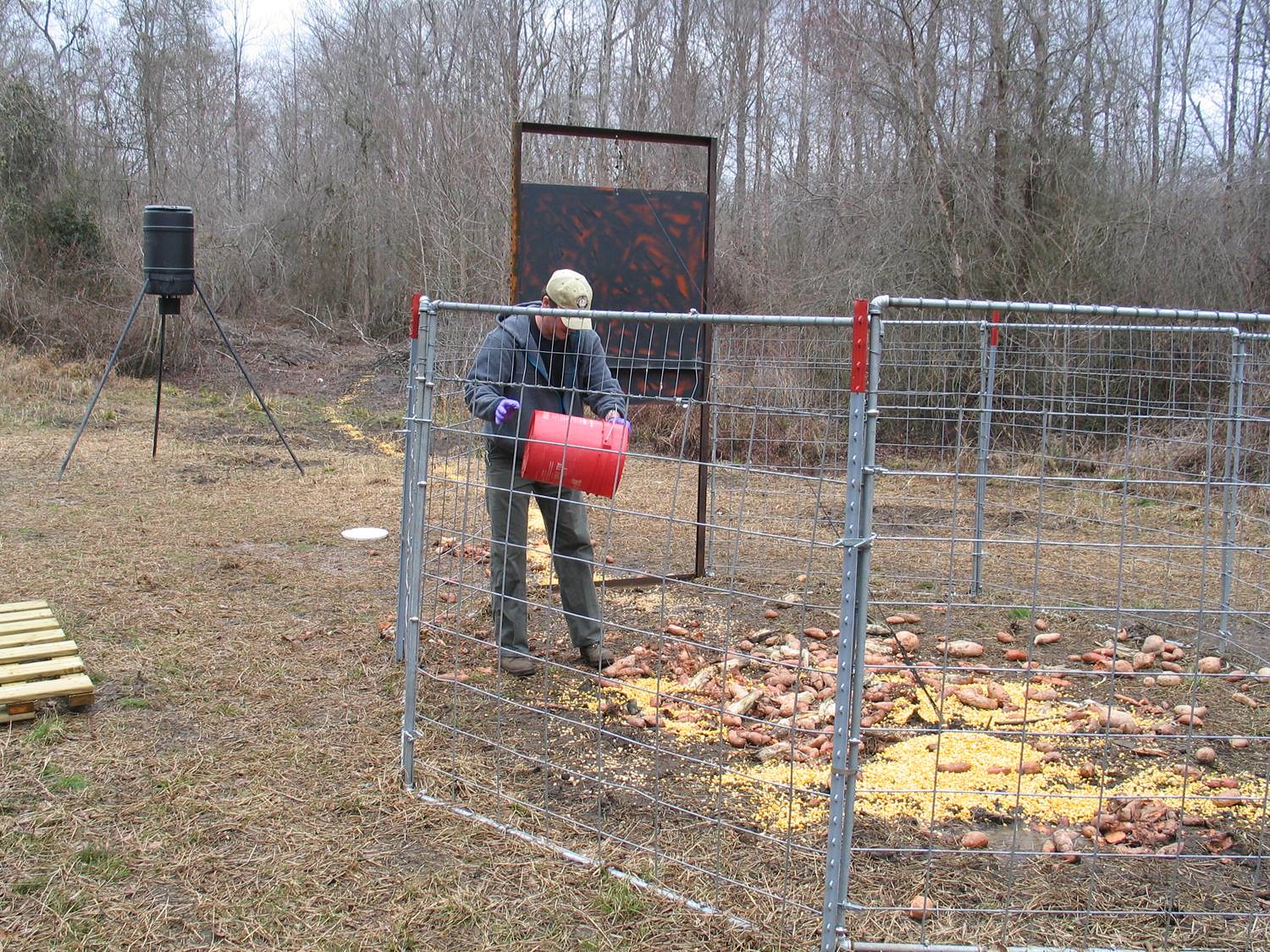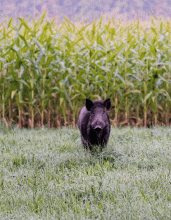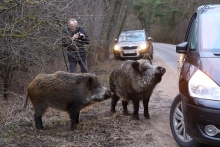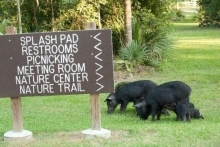Manage the Damage—Stop Feral Swine
What's At Risk
What You Need To Know:
Feral swine often look very similar to domestic hogs, but they are generally thinner with thicker hides of coarse bristly hair and longer tusks.
Look out for these signs of feral swine:
- Extensive rooting or digging that often occurs as feral swine search for food
- Muddy wallows in wet areas during warmer months
- Tree rubbing, which often occurs after wallowing
- Tunnels and trails leading through thick vegetation
- Hoof tracks in the mud near springs, ponds, and streams
- Scat, which resembles dog feces, that may contain partially digested remnants of acorns, grains, and the hair, scales, or feathers of animals the feral swine have eaten
Feral swine cause major damage to a wide range of resource types. Ongoing research indicates that costs from feral swine damage and control are an estimated $2.5 billion each year in the U.S. agricultural sector alone.
Resources damaged by feral swine:
- Agriculture like crops and livestock
- Property like golf courses and public parks
- Historic sites and even archeological artifacts
- Wetlands and waterways
- Delicate ecosystems and native wildlife habitat
- Human health and safety through vehicle collisions
Wildlife biologists and field specialists from APHIS Wildlife Services work to reduce feral swine damage. They provide technical assistance to landowners and land managers, as well as conduct targeted management activities, upon request, to eliminate or alleviate the damage feral swine cause.
The most successful feral swine damage management programs are comprehensive and use a variety of tactics in an integrated approach. When selecting a management method(s), wildlife biologists and field specialists consider the landscape and environmental conditions, feral swine behavior and density, as well as local regulations.
Common techniques for feral swine damage management include:
- whole sounder trapping
- fencing and fladry
- vaccination of livestock
- ground removal operations
- aerial removal operations
Nonlethal management techniques can be effective for limiting disease transmission, crop damage, and livestock loss. However, lethal techniques may be more effective in limiting population growth and achieving long-term suppression of feral swine damage.
Learn more about feral swine damage management and control techniques.
Report Sightings!

Report feral swine sightings online or via the "Squeal on Pigs!" app (available in the App Store and Google Play).
Report a Sighting
Contact Us

Call the APHIS Wildlife Services office in your State for more information and help dealing with feral swine.
Find Your State Office


